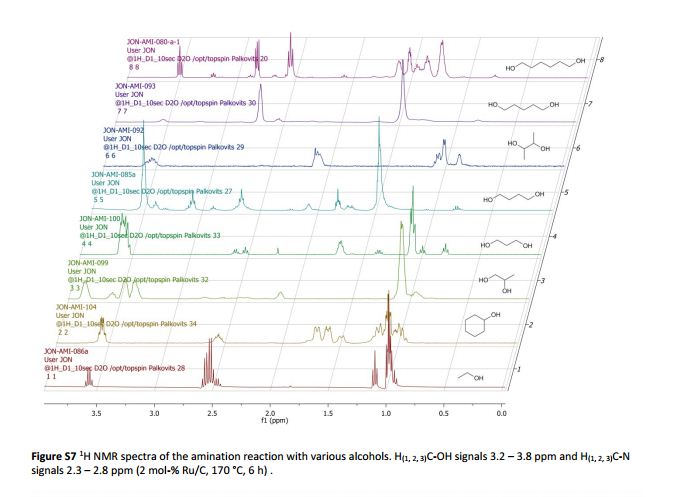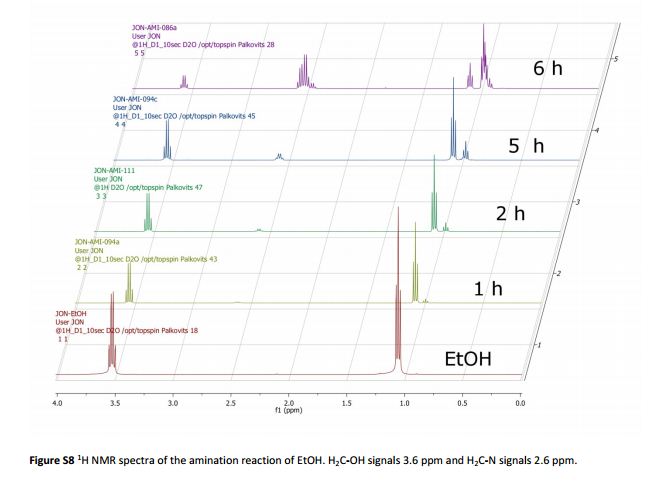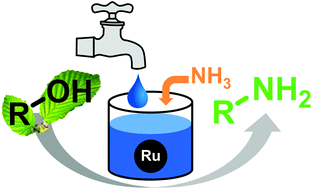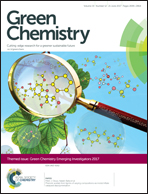Is water a suitable solvent for the catalytic amination of alcohols?
DOI: 10.1039/C7GC00422B, Paper
The catalytic aqueous-phase amination of biogenic alcohols with solid catalysts is reported for future development of renewable amine value-added chains.
Green Chemistry
Is water a suitable solvent for the catalytic amination of alcohols?
Abstract
The catalytic conversion of biomass and biogenic platform chemicals typically requires the use of solvents. Water is present already in the raw materials and in most cases a suitable solvent for the typically highly polar substrates. Hence, the development of novel catalytic routes for further processing would profit from the optimization of the reaction conditions in the aqueous phase mainly for energetic reasons by avoiding the initial water separation. Herein, we report the amination of biogenic alcohols in aqueous solutions using solid Ru-based catalysts and ammonia as a reactant. The influence of different support materials and bimetallic catalysts is investigated for the amination of isomannide as a biogenic diol. Most importantly, the transferability of the reaction conditions to various other primary and secondary alcohols is successfully proved. Hence, water appears to be a suitable solvent for the sustainable production of biogenic amines and offers great potential for further process development.


//////////
















